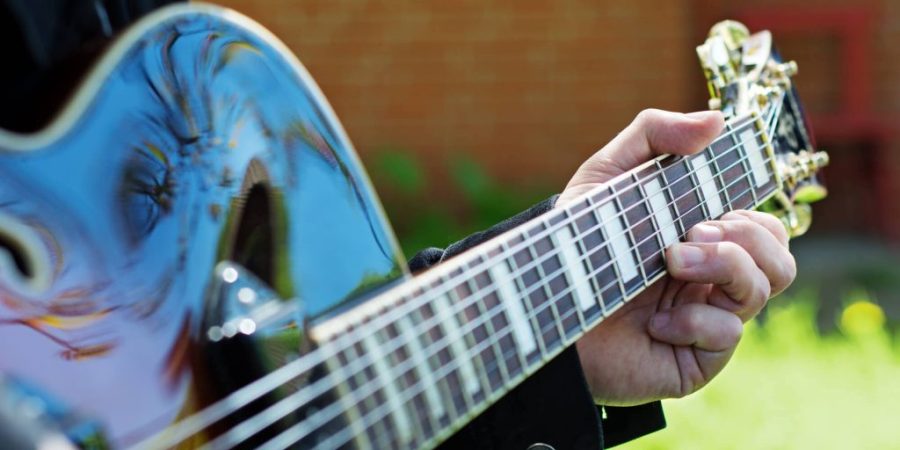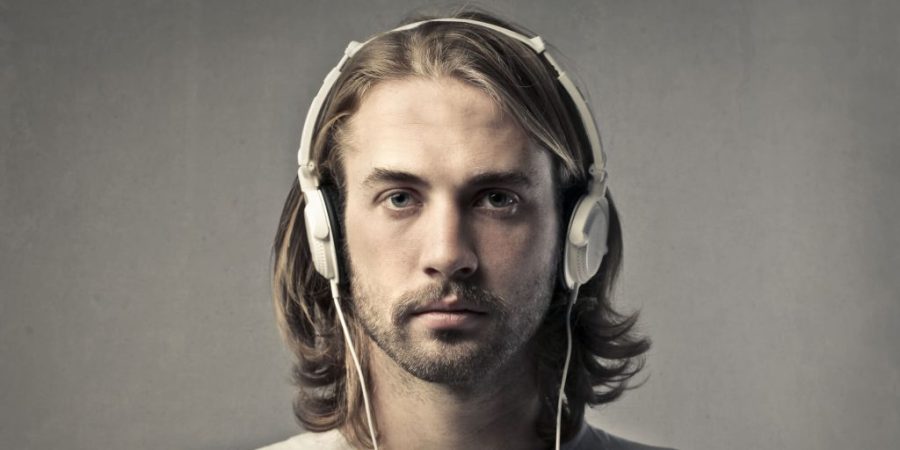
When coping with a drug use problem, pushing the outside world away with recreational therapy in Ohio is sometimes the greatest thing you can do for yourself and your recovery efforts. Music and music therapy are wonderful ways to heal from a traumatic past. Here are some of the advantages of music therapy, as well as some pointers on how to play some of the most popular instruments.
Anyone who has ever listened to the radio, made a mixtape, or created a playlist has witnessed the power of music to affect the mind, body, and soul. Music has the ability to elicit intense emotions and bring old memories flooding back into our minds. Since the dawn of time, music has been utilized to strengthen community relationships, convey emotions, and cure the mind and body from the inside out.

Table of Contents
How Does Music Therapy Work?
Music might be a quick way to improve your mood, but it’s becoming evident that there’s a lot more to the advantages of music than simply a short mood boost. Music has been demonstrated to have a dramatic influence on your body and mind in studies.
In fact, music therapy is a growing field of medicine that uses music to help people heal. Music therapy is a therapeutic technique that aims to enhance people’s mental health and overall well-being by utilizing music’s inherently mood-lifting effects.
Therapeutic Effects of Music
Some of the impacts of music that assist in explaining the success of music therapy are as follows:
State of Mind
Music may also be utilized to promote a more optimistic mindset, which can aid in the prevention of depression and anxiety. The positive or cathartic themes that can be expressed in the lyrics, as well as the uplifting sound of music, can all lead to a new mental state.
This can help prevent the stress reaction from wreaking havoc on the body, as well as maintain creativity and optimism levels high, which can lead to a slew of additional advantages.
Brain Waves
Music with a strong beat has been shown to stimulate brainwaves to resonate in time with the beat, with faster beats promoting sharper concentration and alert thinking. Slower beats promote a calm, meditative state.
Furthermore, research has shown that the change in brainwave activity levels brought on by music might help the brain shift speeds more readily on its own as needed, implying that music can have long-term effects on your mood, even after you’ve stopped listening.
Heart Rate and Breathing
Changes in brainwaves are accompanied by changes in other body activities. Changes in music can also affect those regulated by the autonomic nervous system, such as respiration and heart rate.
This can include, among other things, slower breathing, a slower heart rate, and the activation of the relaxation response.
Music and music therapy can assist in mitigating or avoiding the negative consequences of chronic stress, encouraging not just relaxation but also good health.
Music Therapy’s Advantages
Playing an instrument improves memory and cognitive functioning in the brain, because it requires concentration, awareness, and attention. While the brain heals from drug and alcohol-induced pleasure-seeking, it learns to find pleasure and reward through music. Playing music can serve as an example of the discipline required to maintain sobriety. A few minutes of practice each day yields significant effects.
Music therapy has a slew of measurable and intangible advantages. These include, but are not limited to, the following:
- Overall Feelings of Optimism
- Improved Communication
- Increased Spirituality
- Emotional Release
- Meditation
- Stress Reduction
- Improved Concentration

Substance Abuse and Music Therapy
Music may be an effective aspect of a drug and alcohol addiction rehabilitation program. In a group setting, music allows participants to convey difficult-to-understand thoughts and feelings without using words.
It also allows you to concentrate and push negative thoughts and feelings out of your mind, which could otherwise lead to relapse. Music therapy has been utilized in drug treatment for almost 40 years, but its origins are considerably deeper.
It has been noted that the National Association for Music Therapy was formed in the 1950s and today continues to advocate music as medicine in a variety of settings, including cancer therapy and drug addiction treatment.
Learning to Play an Instrument
Music therapy is more than just listening to your favorite songs. Those in recovery from drug and alcohol misuse must learn to play in order to get the most out of their music. Learning to play an instrument not only teaches a talent but also boosts self-esteem for people who may be suffering from depression.
The piano, bongos, and harmonica are three of the simplest instruments to master. Woodwind instruments such as the flute or clarinet, on the other hand, are excellent choices for individuals who love a challenge.
These instruments are a little more expensive and require a little more study before purchase, but they use a full range of motion, making them more hands-on and a great diversion while dealing with relapse triggers.
Rewiring the Brain with Music Therapy
An hour of daily music practice helps rewire the brain. Listening to and creating soundwaves has been shown in studies to improve emotional identification abilities and help people be more in tune with themselves and others.
This increases the ability to connect with emotions and sentiments may aid a recovered addict in coming to grips with the circumstances in his or her life that prompted the addiction or the harmful acts they performed prior to seeking assistance.
While music is not a cure-all, it may be a valuable addition to drug and alcohol treatment. Music can aid in the development of an emotionally balanced lifestyle. Learning to play an instrument and articulating their feelings with music is one step up the ladder of recovery for individuals dealing with addiction.
While formal music therapy is recommended by many drug and alcohol treatment programs and counselors, the advantages of music can be obtained outside of a group environment. Composing music may aid in emotional expression and can be used to control anxiety, fear, and anger in recovering addicts.

Do You Want to Learn More About Recreational Therapy in Ohio?
Our team of doctors, psychologists, and mental health counselors is standing by to help you right now. Contact us online or call (614) 881-4825 to talk with an admissions expert about our addiction and mental health treatment options.
The post What Is Music Therapy? appeared first on The Woods At Parkside.
Source
Original Author: Cody Cox

